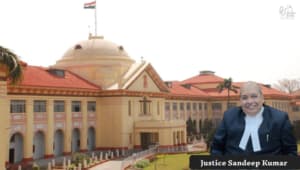In a significant ruling, the Supreme Court of India has upheld the regulations set by the Medical Council of India (now the National Medical Commission) that mandate students aspiring to pursue MBBS from foreign universities to qualify for the National Eligibility-cum-Entrance Test (NEET). The court stated that obtaining an Eligibility Certificate through NEET qualification ensures a fair and transparent admission process for Indian students seeking medical education abroad.
A bench comprising Justices B.R. Gavai and K. Vinod Chandran firmly dismissed petitions challenging these regulations. The bench clarified:
"The requirement of an Eligibility Certificate from the Medical Council had been provided by section 13(4B) through an amendment in 2001. The incorporation of Clause 8(iv) in 2018, mandating NEET qualification, ensures a transparent and fair procedure in granting Eligibility Certificates. We find absolutely no reason to interfere with the regulations."
Read Also:- Supreme Court Upholds AYUSH Students' Degrees Despite Non-NEET Admissions
Petitioners contested the regulation, arguing that the NEET mandate was introduced through a notification rather than an amendment to the Act itself. They sought a one-time exemption from the NEET qualification requirement to obtain an Eligibility Certificate. However, the Supreme Court denied their request, emphasizing that students who chose to enroll in foreign medical institutions after the regulation came into effect cannot be exempted from this requirement.
"With open eyes, if any candidate chose to obtain admission in a foreign institution for a primary medical qualification after the amended regulations came into effect, they cannot seek exemption. The regulations establish essential eligibility criteria for practicing medicine in India. This does not, however, restrict their right to practice outside India."
The regulation mandating NEET qualification for students planning to study MBBS abroad is based on:
- Indian Medical Council Act, 1956 (Amended in 2001): Added sub-sections (4A) and (4B) under Section 13.
- Section 13(4A): Requires students with foreign medical qualifications to pass a screening test before enrolling in the Indian Medical Register.
- Section 13(4B): Mandates obtaining an Eligibility Certificate from the Medical Council before securing admission in a foreign medical institution.
- Foreign Medical Institution Regulation, 2002: In 2018, Clause 8(iv) was introduced, requiring students to qualify for NEET before enrolling in any foreign medical institution.
Read Also:- NEET 2024: Madhya Pradesh HC Directs Inclusion of Vacant NRI PG Seats in General Quota
The Supreme Court concluded that the NEET requirement does not violate the Constitution, nor does it contradict the provisions of the Medical Council Act. The judges emphasized:
"The regulations, especially the additional mandate to satisfy the eligibility criteria, are neither unconstitutional nor in conflict with any provisions of the Act. They are also not arbitrary or unreasonable."
Accordingly, the court dismissed all petitions challenging the NEET requirement.
This judgment reinforces the Indian government's commitment to maintaining high standards in medical education and ensuring that students pursuing MBBS abroad meet the same level of qualification as those studying within the country. The decision aims to:
- Ensure uniformity in medical education standards.
- Prevent unqualified individuals from practicing medicine in India.
- Encourage students to prepare rigorously for NEET before seeking admission abroad.
Case Title: Arunaditya Dubey vs. Medical Council of India & Anr.















